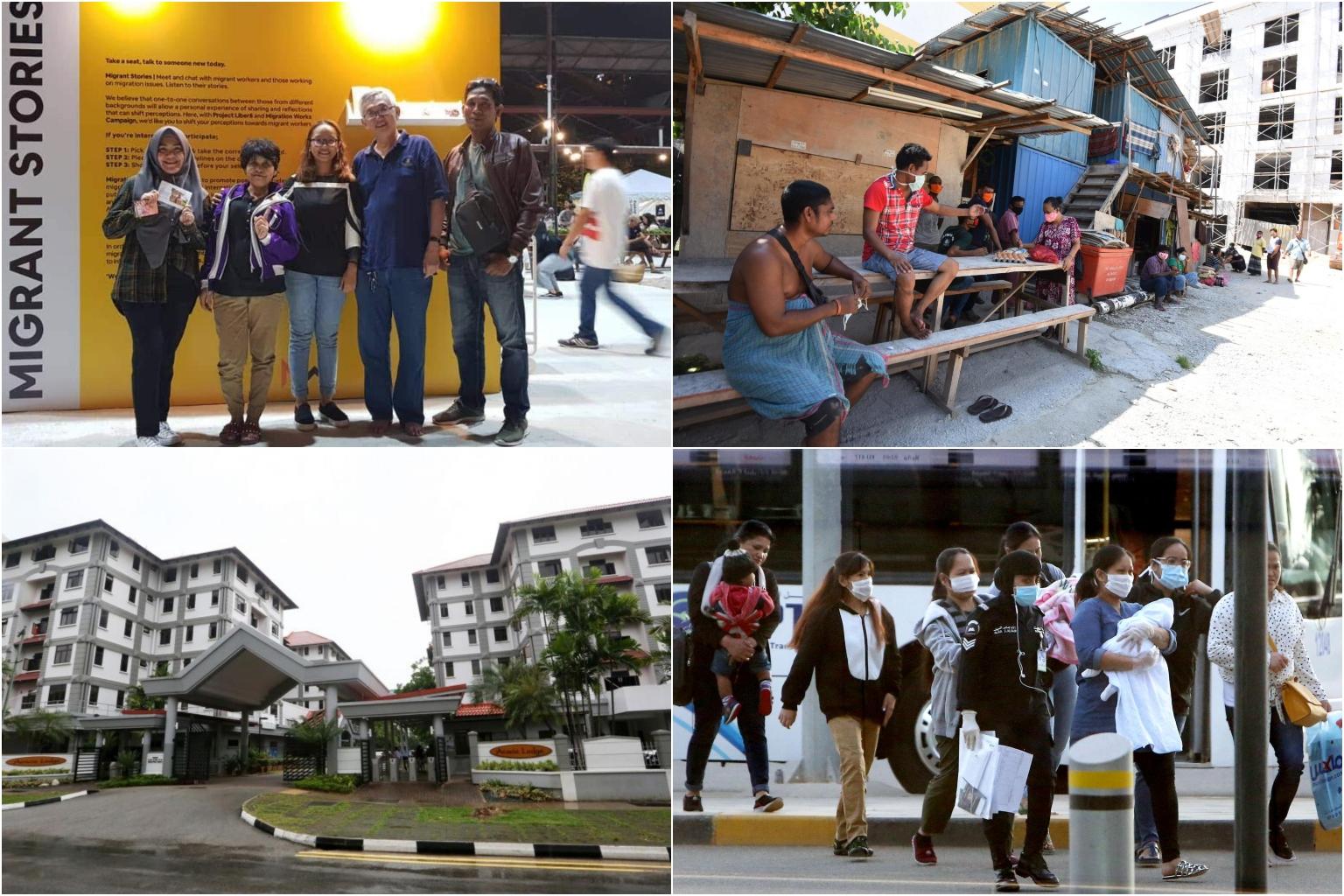Migrant workers in Asia: Far from home amid the Covid-19 pandemic
Sign up now: Get insights on Asia's fast-moving developments

PHOTOS: COURTESY OF MR KARMADI, THE STAR PUBLICATION, SHIN MIN DAILY NEWS, AFP
Migrant workers are the backbone of many economies in Asia and the Middle East and a vital source of income for families back home. But the pandemic has hit these workers hard, leading some to lose their jobs or face salary cuts. The Straits Times correspondents around the region talk to migrant workers to hear their stories.
Indonesians in Malaysia struggle to make ends meet
For nearly two months, Indonesian migrant construction worker Karmadi has had plain rice or noodles every day. If he is lucky, his friends give him vegetables and fish.
He lost his painting job with a daily pay of RM100 (S$33) in Kuala Lumpur following Malaysia's movement control order (MCO), implemented since March 18 to curb the spread of the coronavirus.
With less than RM1,000 left in his pocket, the 48-year-old cannot send money to his wife and four children in East Java.
Many Bangladeshis unable to send money to families
Ayesha (not her real name), a 35-year-old woman in Bangladesh's Narayanganj district, spends most of her time praying these days. It is what keeps her hopeful during this difficult period.
Her husband is an undocumented worker in Malaysia's construction industry and has been sick often in recent months. A Covid-19 test, thankfully, turned out to be negative last week.
He would send his family around 20,000 Bangladeshi taka (S$330) every month but his frequent bouts of illness - leaving him unable to work - and a movement control order by Malaysia since March 18 meant he has not been able to send money home for four months.
Some Indians worry about health, wages here; face hunger, arrests in Malaysia
In the crowded room of his dormitory in Singapore, metal scrap worker Rethnam's nightmares are about infection.
"I panic every time someone coughs or even sneezes," Mr Rethnam, who did not want to give his full name, told The Straits Times.
With construction work stopped since April 7 when circuit breaker measures came into effect in Singapore, Mr Rethnam, who hails from Sivagangai in Tamil Nadu, was initially worried whether he would receive this month's pay cheque.
Filipinos tighten their belts for long, hard road ahead
The coronavirus pandemic has displaced at least 90,000 Filipinos working abroad, most as low-wage labourers in the Gulf states.
Many have been furloughed without pay, or are now jobless because of lockdowns or shelter-at-home restrictions, according to the Overseas Workers Welfare Administration.
With the world's economies cratering, researchers here estimate that up to 400,000 out of some four million Filipinos in 46 countries may take a hit. Most will suffer pay cuts, or may have to look for other jobs or return to the Philippines.
Thais in Israel, South Korea among the luckier ones
For the 26,000 Thais working in moshavim, Israel's farming communities, life has not changed much as a result of Covid-19.
Each day, as he has done for the past four years, Mr Putta Chawernchai picks apples at a farm in the southern Israeli region of Arava and then goes back to his sleeping quarters in the compound.
He and other workers lived there in relative isolation even before there were lockdown measures for the pandemic.


